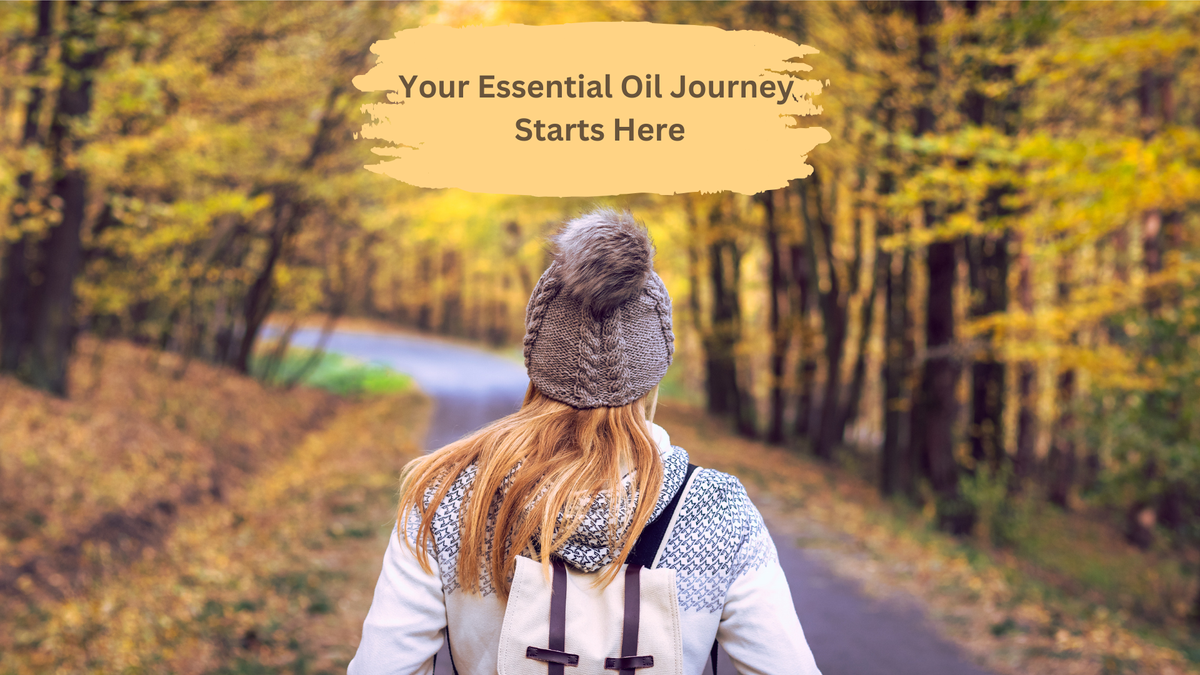Disclaimer, Privacy Policy, Terms of Service
Venturing into the world of essential oils can be both exciting and overwhelming, especially if you're new to it. Essential oils offer countless benefits, from supporting wellness to elevating your home environment. To help you get started, it’s important to have the right tools and products. In this blog, we’ll walk through the essential items you’ll need for a successful essential oil journey—from oils and diffusers to containers and trusted resources.
1. Essential Oils: The Core of Your Collection
At the heart of every essential oil journey are the oils themselves. High-quality essential oils can be used for a wide range of purposes, including aromatherapy, skincare, cleaning, and emotional support. When starting out, it’s best to begin with a few versatile oils and expand your collection over time. Here are some beginner-friendly oils:
- Lavender: Calming and soothing, great for sleep and stress relief.
- Peppermint: Energizing and cooling, useful for headaches, congestion, and boosting focus.
- Tea Tree: Antimicrobial, great for skin issues and cleaning.
- Lemon: Fresh and uplifting, ideal for cleaning and mood enhancement.
- Eucalyptus: Great for respiratory support and congestion relief.
- Frankincense: Known for its grounding and healing properties, ideal for meditation and skincare.
When purchasing essential oils, look for brands that offer 100% pure, therapeutic-grade oils to ensure you’re getting the best quality.
2. Diffuser: Aromatherapy Made Easy
A diffuser is an essential tool for dispersing essential oils into the air, making it easier to enjoy the benefits of aromatherapy. There are several types of diffusers, but ultrasonic diffusers are the most popular. These use water and ultrasonic waves to release a cool, fragrant mist into the air.
- How to use a diffuser: Simply add water to the diffuser’s reservoir, then add 5-10 drops of your chosen essential oil. Turn it on and enjoy the aroma!
- Benefits: Diffusing essential oils helps purify the air, support mood, and create a calm, inviting environment.
3. Roller Bottles: Portable Wellness
Roller bottles are handy, portable containers that allow you to mix essential oils with a carrier oil for easy topical application. These are great for creating custom blends that you can carry with you and apply on the go.
- What you need: 10 mL glass roller bottles with metal or plastic roller balls.
- How to use: Combine a carrier oil (like fractionated coconut oil) with a few drops of essential oil in the roller bottle. Label your blend for easy identification.
- Common uses: Apply blends to your wrists, neck, or temples for relaxation, focus, or immune support.
4. Carrier Oils: Diluting Essential Oils for Topical Use
Since essential oils are highly concentrated, it’s important to dilute them with a carrier oil before applying them to the skin. Carrier oils help ensure that essential oils are absorbed safely and effectively. Here are some popular carrier oils to keep on hand:
- Fractionated Coconut Oil: Light, non-greasy, and great for skin application.
- Jojoba Oil: Ideal for skincare as it closely mimics the skin’s natural oils.
- Sweet Almond Oil: Nourishing and moisturizing, often used in massage.
- Grapeseed Oil: Lightweight and quick-absorbing, great for sensitive skin.
Always store carrier oils in cool, dark places to preserve their quality.
5. Spray Bottles: For DIY Sprays
Glass spray bottles are essential if you plan to make DIY room sprays, cleaning products, or personal care mists. Essential oils can break down plastic, so glass is the preferred option to ensure the integrity of your blends.
- Common uses: Create room sprays, linen mists, or natural cleaning solutions. For example, you can make a refreshing room spray by mixing water, a few drops of lavender and lemon essential oils, and a bit of witch hazel.
6. Glass Containers: Storing Your Blends
If you plan to make larger batches of DIY products or store essential oil blends, various sizes of glass containers will come in handy. Small dropper bottles (5-10 mL) are great for serum blends, while larger bottles (16 oz or more) are perfect for DIY cleaning solutions and sprays. Glass helps preserve the oils’ properties better than plastic.
7. Essential Oil Tools: A Must-Have for DIY Enthusiasts
To make your essential oil experience smoother and more enjoyable, consider picking up a few key tools:
- Pipettes or droppers: For accurate measurements when making blends.
- Essential oil key: A small tool that helps you open roller bottles and dropper bottles with ease.
- Labels: Label your DIY blends to keep track of the oils and their intended use.
8. Trusted Websites and Experts to Follow
Learning about essential oils is an ongoing process, and having the right resources can make all the difference. Here are some websites and experts worth following:
- Dr. Josh Axe: A leading expert in essential oils and holistic health, offering articles, recipes, and tips.
- Aromahead Institute: A well-known educational resource for aromatherapy certification and recipes.
- Dr. Eric Z.: A great place for essential oil education.
Following these experts and resources will help you learn how to use essential oils safely and effectively in your daily routine.
Starting Your Essential Oil Journey: Final Tips
As you begin your essential oil journey, remember to start small. Invest in a few high-quality essential oils and tools, and gradually build your collection as you learn more about how each oil works for you. Whether you're using oils for aromatherapy, skincare, or wellness, the right tools will enhance your experience and allow you to enjoy the full benefits of essential oils.
With a diffuser, roller bottles, carrier oils, and a few well-chosen essential oils, you’ll be well on your way to creating a healthier, more natural lifestyle with the power of essential oils. Happy oiling!
